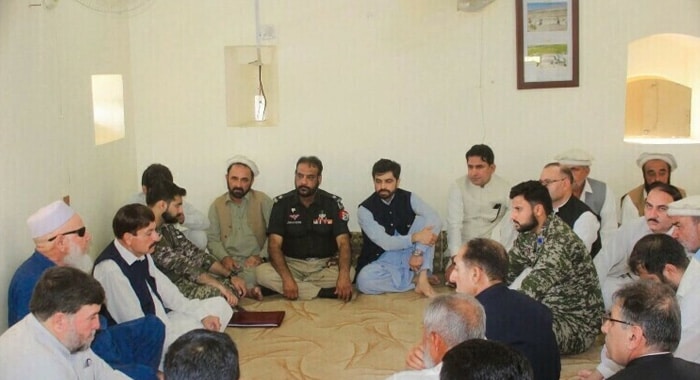In a historic breakthrough for the conflict-stricken Kurram district, tribal elders from Lower Kurram and Sadda signed a year-long peace agreement during a grand jirga held at the Frontier Corps (FC) Fort in Sadda, marking a decisive step toward ending years of bloodshed and restoring sustainable peace in the region.
Presided over by Deputy Commissioner Kurram, Ashfaq Khan, the jirga brought together prominent tribal elders, senior officials of the security forces, police, and district administration. The agreement reflects months of intensive behind-the-scenes negotiations and renewed resolve from all stakeholders to turn the page on a prolonged cycle of sectarian and tribal violence.
“This peace accord is the culmination of tireless efforts by the administration, security forces, police, and local leaders. A one-year agreement has been reached between the tribes of Lower Kurram and Sadda to ensure peace and prevent further conflict,” DC Ashfaq Khan shared.
The latest agreement builds on an eight-month truce reached earlier in March before Eidul Fitr, and follows a January ceasefire that paused a long-running conflict rooted in decades-old land disputes. The violence, which has simmered for years, has claimed at least 130 lives and repeatedly undermined peace-building efforts in one of Khyber Pakhtunkhwa’s most sensitive districts.
The jirga was attended by influential elders from both the Sunni and Turi Bangash communities, alongside Additional Deputy Commissioner, Assistant Commissioners, and senior law enforcement and military officials. According to officials, the parties reaffirmed their commitment to the principles outlined in the earlier Kohat Agreement, agreeing to uphold its terms in letter and spirit.
“This agreement is not just a ceasefire; it is a milestone for regional stability,” DC Ashfaq Khan declared. He lauded the courage and foresight of tribal elders and acknowledged the sacrifices made by the security forces, calling their efforts “instrumental in paving the path to peace.”
The peace accord was unanimously signed by residents of dozens of villages and surrounding areas, including Topaki, Sameer, Gosar, Amal Kot, Gharbina, Sangeena, Kundezar, Mangak, Tange, Manda, Marokhel, and Lower Kurram’s outskirts, as well as Sadda, Kochi, Satain, Shasho, Durrani, Pir Qayyum, Sakhi Ahmad Shah, Mala Kali, Chakai Kali, Jan Haji Kali, Malik Malajan Kali, Araoli, Marokhel, Lower Mandori, and nearby settlements.
Tribal elders welcomed the accord, describing it as a “turning point” and expressing hope for long-term peace, economic revival, and social harmony in the region. Many emphasized that the agreement offered the best chance in decades to move beyond generational conflict.
The accord comes amid heightened security across the Kohat Division, where more than 10,000 personnel from the army, police, and civil armed forces were deployed during Muharram. Due to recurring sectarian unrest in past years, security control of Kurram district had previously been handed over to the military a measure that underscores the district’s strategic and security sensitivities.
Officials stated that implementation committees and local monitoring mechanisms will be formed to ensure compliance with the agreement and swiftly address any emerging tensions.
The peace accord signals a powerful new chapter for Kurram—one built not on the ashes of conflict, but on the shared will of its people to forge a future grounded in unity, dialogue, and hope.





